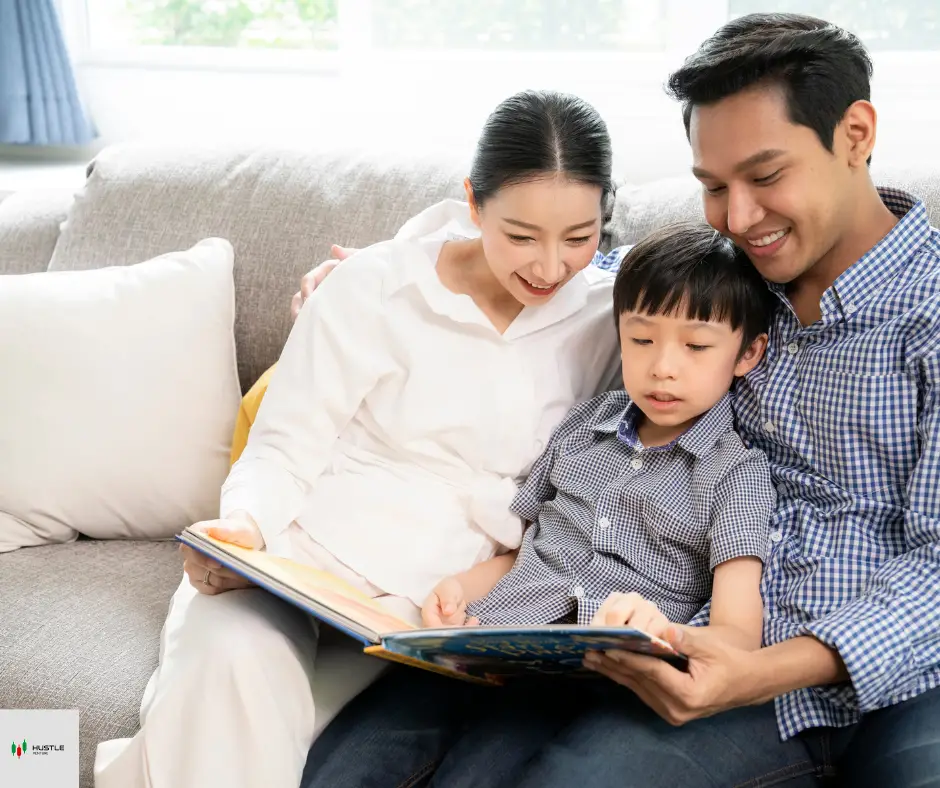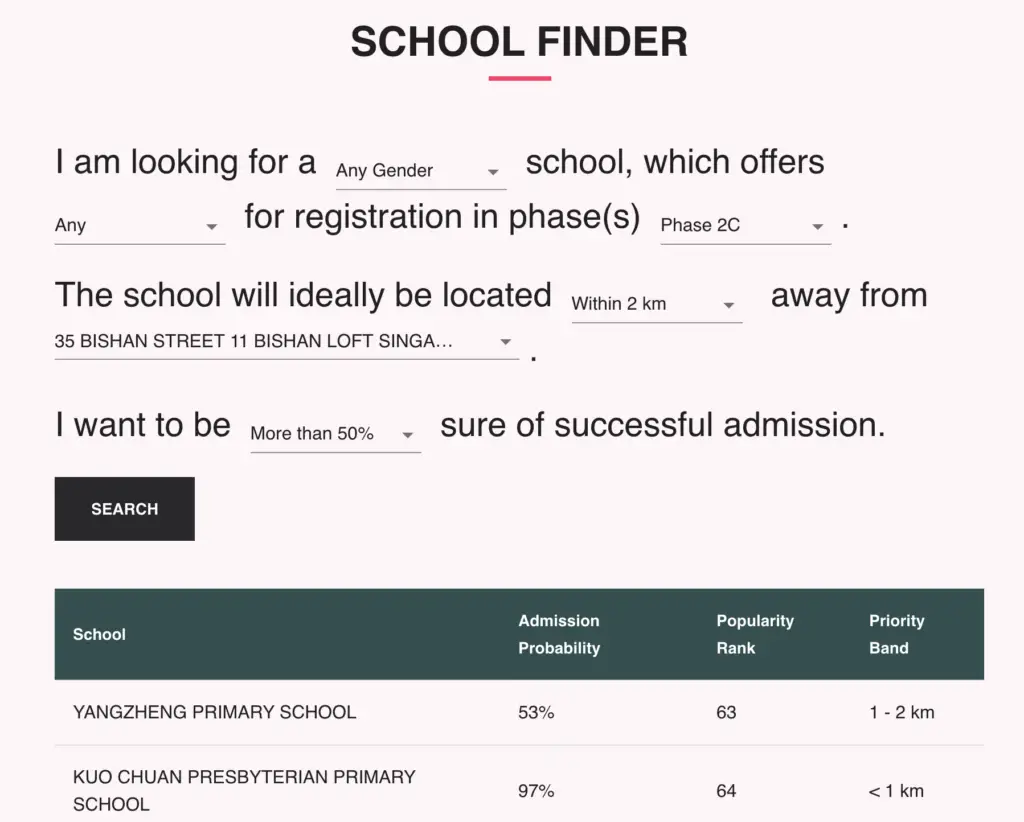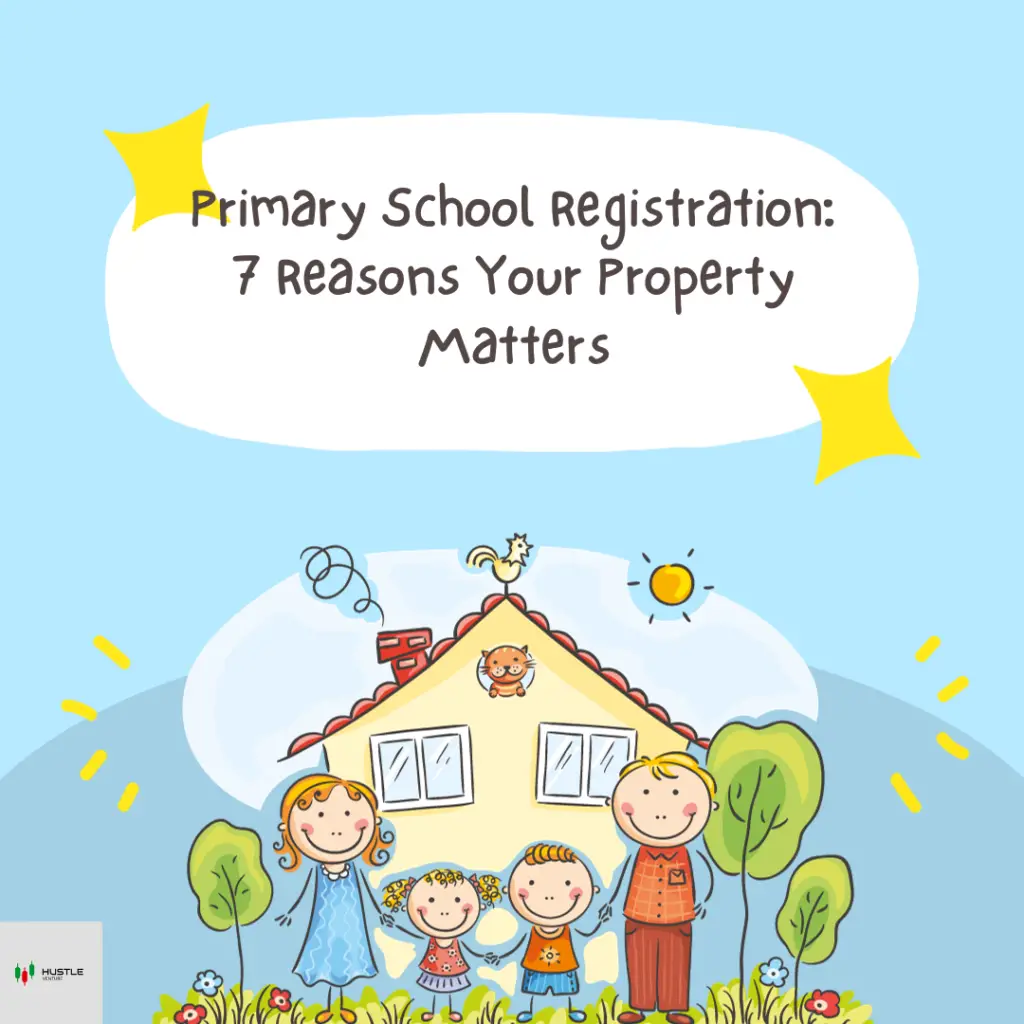Navigating the beginning of your child’s educational path can feel overwhelming for many parents. For parents who have not yet registered their child for primary school registration, the process may be hectic and daunting.
We want the best for our children, I believe all parents do. While some parents are lucky enough to apply their child to their former schools or a members of the school advisory or management committee, not everyone has the chance to do so. Therefore, to increase the odds of getting their child to the primary school that they want, choosing the right property to reside matters can significantly impact your child’s school options, potentially influencing their access to top-tier education.
Given the specific regulations that can influence school admissions in Singapore, this guide is tailored for parents seeking insights into maximizing their child’s chances of securing a spot in a desired primary school.
Key Takeaway
- Why picking the right property matters
- How to get around and increase your chances of getting into the desired primary school
What You Need to Know about Primary School Registration

In Singapore, the primary school registration process is a structured and time-sensitive procedure to ensure fairness and transparency for all applicants. The phases for primary school registration typically include:
- Phase 1:
- For Children Living within 1 km of the School: This phase prioritizes children living closest to the school. Siblings of current students studying in the school are also given priority during this phase.
- Phase 2A(1):
- For Alumni and School Staff: Children whose parents are members of the school’s alumni association or staff members can register their children during this phase, provided the parents have been in the association or employed by the school for a certain period.
- Phase 2A(2):
- For Community Leaders and Affiliated Schools: This phase caters to children whose parents are endorsed as community leaders or have affiliations with the school through certain partnerships or programs.
- Phase 2B:
- For Siblings of Non-Alumni and Children of School Volunteers: After considering the aforementioned phases, this phase prioritizes children with siblings already studying in the school and those whose parents have volunteered extensively in the school.
- Phase 2C:
- For Children Living Between 1 km and 2 km of the School: Children residing within this radius but beyond the 1 km boundary are eligible for this phase. The order of registration is determined by a ballot system if there are more applicants than available slots.
- Phase 2C Supplementary:
- For Children Living More than 2 km from the School: This phase is for children who reside furthest from the school. Similar to Phase 2C, the order of registration is determined by a ballot system.
- Phase 3:
- For All Remaining Applicants: If any vacancies remain after the earlier phases, this phase opens up registration to all remaining applicants, regardless of their proximity to the school.
When there are more registrations than anticipated (usually happens to elite schools or schools with more recommendations), computerized balloting will be conducted centrally by MOE. All registrants who are required to vote are assured of an equal chance for admission into the school.
This is why, some parent go the extra effort to invest in a property for their child’s education. To them, a few extra thousand is worth the ease of having to worry for them in the future.
How to Know If your Property is Within 1km

If you are considering purchasing a property to enhance your child’s chances of getting into a specific primary school, it’s important to verify the home-school distance, as this can affect your child’s eligibility for priority admission. If you’re not sure whether the property you’re staying or intending to buy/rent is within a 1km radius of the primary school, be sure to use the school finder tool. This tool allows you to know the distance from the ideal primary school and ranks the odds of your having a successful admission.
Benefit of Buying Properties Within Good Schools

1) Potentially Higher Earnings
The value of your property can only rise if your house is close to a renowned primary school. It might even be one of its best-selling features!
With Singapore becoming more interconnected, one of the only driving factors in property price is its locality within good schools. Take for example Nan Hua Primary School located in Clementi, some of its properties located within a 1km radius are fetching over $1 million while other parts in Clementi are sold for less.
There is typically a strong demand for housing near these schools, which drives up property values. This will come in handy if you ever decide to sell your house because of its prime location, which could bring in more money. The benefits of being close to these institutions are numerous and include networking opportunities, time-saving convenience, improved enrollment chances, and access to high-quality education.
However, when making such a decision, it’s crucial to take your entire lifestyle, spending capacity, and long-term goals into account. Making the best decision for you and your kids requires striking the correct balance between education, family needs, and personal preferences.
2) Time and convenience
Taking the bus or having to worry about your kids being late can be stressful for parents especially when school starts early in the morning. By staying near the desired primary school, parents may be less stressed out about waking up early for their kids and have a more balanced work-life schedule by saving time on daily drop-offs and pick-ups.
3) Extra Curriculum
Studies reveal that involvement in extracurricular activities enhances adolescents’ sense of self-worth, confidence, and self-image. Students gain knowledge in their areas of interest and gain insight into their individual goals, abilities, and potential fears through engaging in activities.
Your child could serve on the Student Council, for instance, gain more resilience and discipline through sports competition, and develop their creative muscles in one of our many clubs that focuses on the arts and design. There are many options for personal growth, and all students gain time management skills by juggling extracurricular activities with their regular academic schedules.
4) Easy Exit Strategy
While the demand for properties near good schools is high, the supply remains limited. For many buyers, purchasing a property near a reputable school is also an investment in their children’s future education. This emotional and practical consideration can motivate buyers to make competitive offers, simplifying the selling process for sellers.
5) Good Rental Yield (For Property Investors Only!)
To qualify for phase 1 of primary school admission, some parents would pay longer rent for their property to qualify for the 30-month stay requirement for primary school registration. This means that landlords would never have to worry about finding new tenants and could collect passive rentals for their tenants for a long period. And when it comes to good schools, the location of your property may be one of the best driving factors for long-term tenants.
Buying the Right Property Matters

We all want the best for our children. Understanding the intricate relationship between property and primary school registration is paramount. By recognizing the multifaceted ways properties influence this process, parents can make informed decisions, ensuring a smooth registration journey for their children.
Hopefully, your children will appreciate your actions in the future!
Aaron Oon is a Senior Associate Director at Propnex and Founder of Real Estate Insider. A consistent Top Producer in the competitive world of real estate, Armed with a Finance degree from NUS, Aaron is more than just a real estate agent; he’s a strategic thinker and a creative problem solver.
If you are looking to invest in a property here in Singapore or would like to know more about Singapore’s property market. Be sure to reach out through the Calendy video link below:






